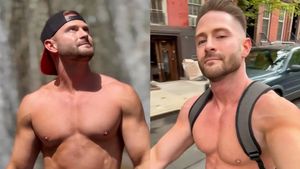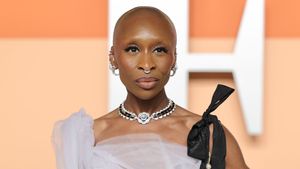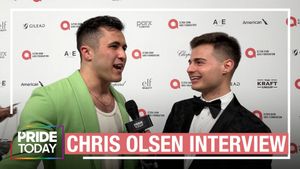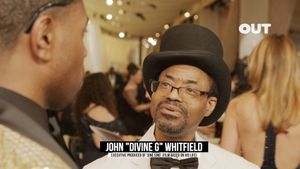A federal court has struck down the last barrier to military service by people with HIV who are asymptomatic and have an undetectable viral load.
“Defendant’s policies prohibiting the accession of asymptomatic HIV-positive individuals with undetectable viral loads into the military are irrational, arbitrary and capricious,” U.S. District Judge Leonie Brinkema of the Eastern District of Virginia wrote in the Tuesday opinion in the case of Wilkins v. Austin. “Even worse, they contribute to the ongoing stigma surrounding HIV-positive individuals while actively hampering the military’s own recruitment goals.”
In two other cases, Harrison v. Austin and Roe & Voe v. Austin, courts had ruled that the military policies preventing the commissioning and retention of these service members violated the U.S. Constitution and the Administrative Procedure Act, a federal law. Until Brinkema’s decision, there had not been a ruling on whether barring these people from joining the military also violated the Constitution and the APA.
The Harrison and Roe rulings came before the Biden administration’s announcement in July 2022 that it would no longer defend restrictions that prevented service members living with HIV from deploying and commissioning as officers. In response to those rulings, Defense Secretary Lloyd Austin did not appeal but instead ordered all military branches to change their regulations so that those service members could be commissioned and retained. His order, however, did not change the barrier to enlistment.
The Defense Department contended that service members with HIV posed a medical risk, but Brinkema noted that antiretroviral treatment that suppresses a person’s viral load to an undetectable level makes the risk of transmission low to nonexistent. The department did not present any evidence that differed from that in the Harrison and Roe cases, she wrote.
The Wilkins case was filed in November 2022 by Isaiah Wilkins, a Black gay man who wishes to join the U.S. Army; Carol Coe, a transgender Latina lesbian, identified by a pseudonym, who wants to reenlist after having been discharged; and Natalie Noe, also identified by a pseudonym, a straight woman who wishes to enlist. All are HIV-positive, asymptomatic, and undetectable. Minority Veterans of America is a plaintiff in the case as well. They are represented by Lambda Legal; Peter Perkowski, legal policy director at Minority Veterans of America; attorney Scott A. Schoettes; and lawyers with the firm of Winston & Strawn.
“We are pleased the court has eliminated the last discriminatory policy that barred people living with HIV from seeking enlistment or appointment to the military,” Gregory Nevins, senior counsel and Employment Fairness Project director at Lambda Legal, said in a press release. “Americans living with HIV no longer face categorical barriers to service careers — discharge, bans on commissioning, bans on deployment and finally bans on enlisting.”
“This is a victory not only for me but for other people living with HIV who want to serve,” Wilkins said in the release. “As I’ve said before, giving up on my dream to serve my country was never an option. I am eager to apply to enlist in the Army without the threat of a crippling discriminatory policy.”



















































































